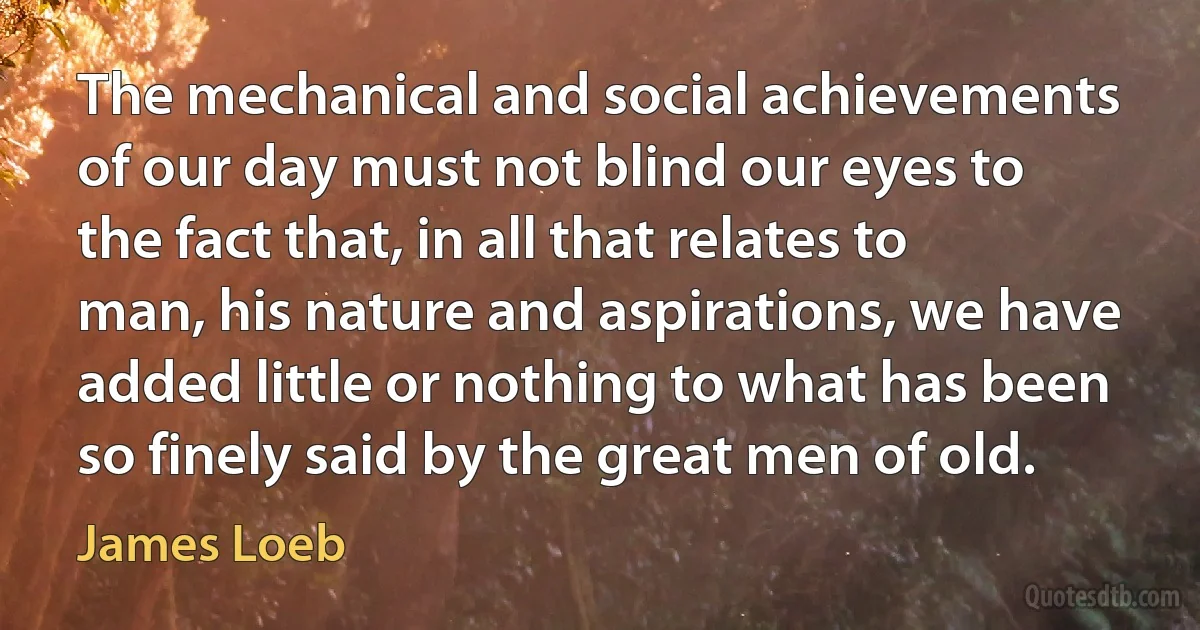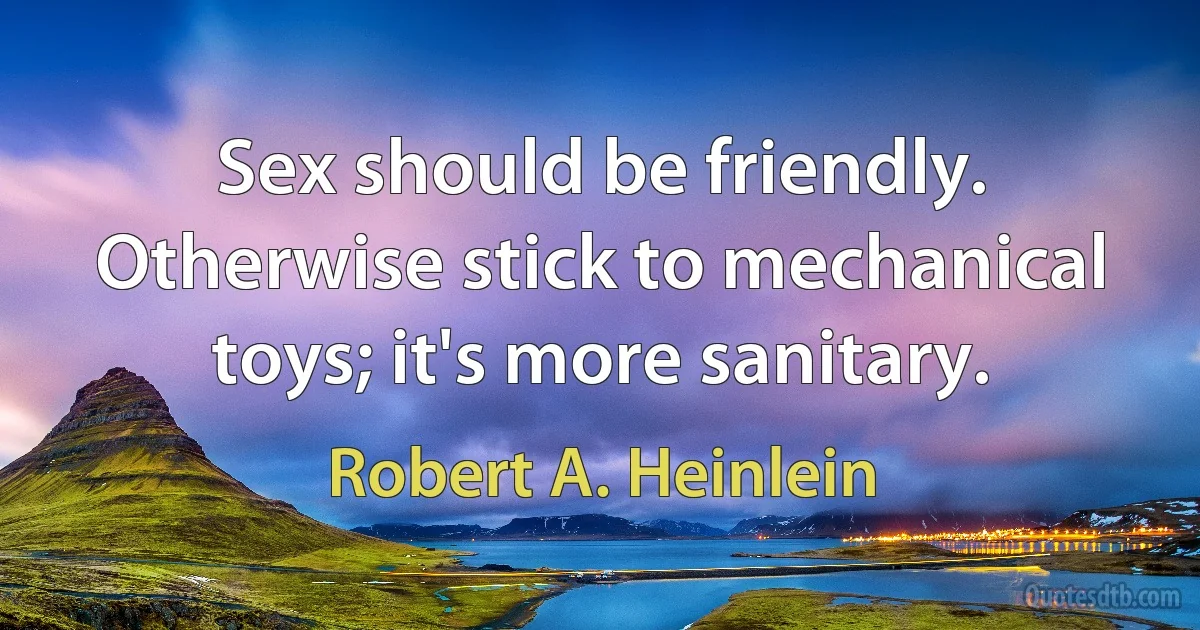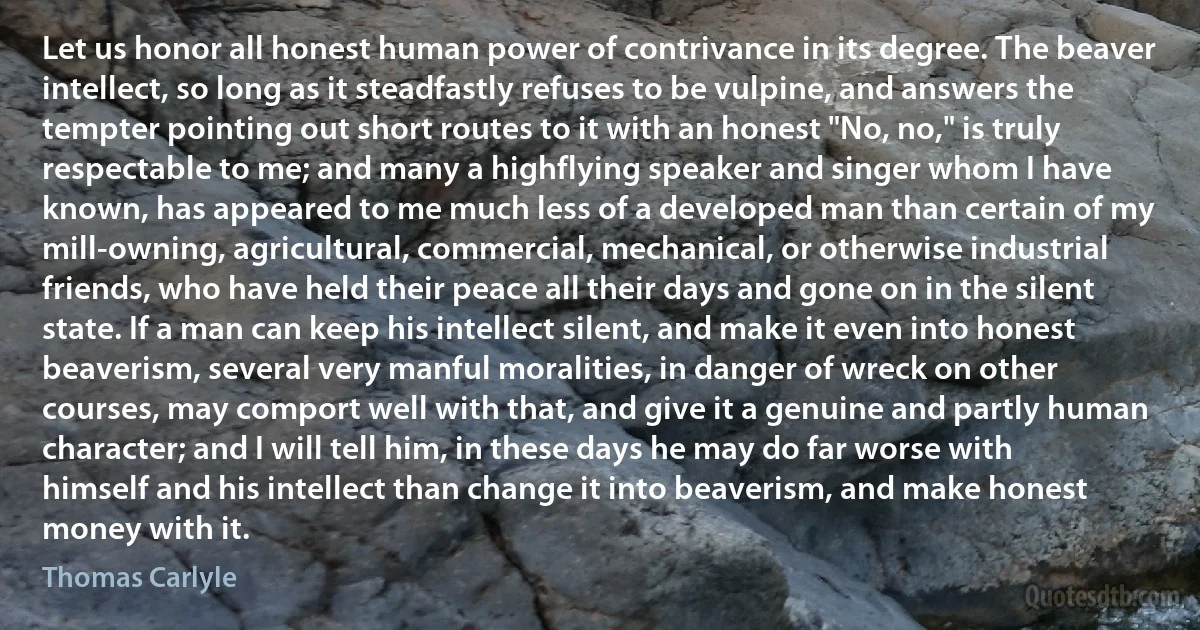Mechanical Quotes - page 4
True Americanism is practical idealism. Its aims, instead of being materialistic and mechanical, are idealistic to the point of being Utopian. In this way, the U.S. can provide and express ideals that strike a chord in humans everywhere - a declaration of independence on behalf of all the peoples of the world.

Maurice Saatchi
Find something that you love to do, and find a place that you really like to do it in. I found something I loved to do. I'm a mechanical engineer by training, and I loved it. I still do. My son is a nuclear engineer at MIT, a junior, and I get the same vibe from him. Your work has to be compelling. You spend a lot of time doing it.

Ursula Burns
The change began with John Stuart Mill and the Utopians. When Mill pointed out that economics had no ultimate solution to the problem of distribution, that society might do with the fruits of its toil as it saw fit, he introduced into the mechanical calculus of the market a conflicting calculus of moral judgment.

Robert Heilbroner
It is impossible by means of inanimate material agency, to derive mechanical effect from any portion of matter by cooling it below the temperature of the coldest of the surrounding objects. [Footnote: ] If this axiom be denied for all temperatures, it would have to be admitted that a self-acting machine might be set to work and produce mechanical effect by cooling the sea or earth, with no limit but the total loss of heat from the earth and sea, or in reality, from the whole material world.

William Thomson
He had enormous and poetic admiration, though very little understanding, of all mechanical devices. They were his symbols of truth and beauty. Regarding each new intricate mechanism-metal lathe, two-jet carburetor, machine gun, oxyacetylene welder-he learned one good realistic-sounding phrase, and used it over and over, with a delightful feeling of being technical and initiated.

Sinclair Lewis
1. There is at present in the material world a universal tendency to the dissipation of mechanical energy.
2. Any restoration of mechanical energy, without more than an equivalent of dissipation, is impossible in inanimate material processes, and is probably never effected by means of organized matter, either endowed with vegetable life or subjected to the will of an animated creature.
3. Within a finite period of time past, the earth must have been, and within a finite period of time to come the earth must again be, unfit for the habitation of man as at present constituted, unless operations have been, or are to be performed, which are impossible under the laws to which the known operations going on at present in the material world are subject.

William Thomson
With... small-town life... there are hundreds of thousands... who are not content. The more intelligent young people... flee to the cities... and... stay there, seldom returning even for holidays. The reason, Carol insisted... is an unimaginatively standardized background, a sluggishness of speech and manners, a rigid ruling of the spirit by the desire to appear respectable. It is contentment... the contentment of the quiet dead, who are scornful of the living for their restless walking. It is the prohibition of happiness. It is the slavery self-sought and self-defended. It is dullness made God. A savorless people, gulping tasteless food and sitting afterward, coatless and thoughtless, in rocking-chairs prickly with inane decorations, listening to mechanical music, saying mechanical things about the excellence of Ford automobiles, and viewing themselves as the greatest race in the world.

Sinclair Lewis
If, in each hour, a man could learn a single fragment of some branch of knowledge, a single rule of some mechanical art, a single pleasing story or proverb (the acquisition of which would require no effort), what a vast stock of learning he might lay by. Seneca is therefore right when he says: "Life is long, if we know how to use it." It is consequently of importance that we understand the art of making the very best use of our lives.

John Amos Comenius
Economics is harder than physics; luckily it is not quite as hard as sociology. Why is economics such a hard subject? Part of the answer has to do with complexity. The economy cannot be put in a box. [...] Another reason economics is hard is that the critical sociologist is right: it involves human beings, who do not behave in simple, mechanical ways.

Paul Krugman
These things, which we state lightly enough here, are yet of deep import, and indicate a mighty change in our whole manner of existence. For the same habit regulates not our modes of action alone, but our modes of thought and feeling. Men are grown mechanical in head and in heart, as well as in hand. They have lost faith in individual endeavour, and in natural force, of any kind. Not for internal perfection, but for external combinations and arrangements, for institutions, constitutions, for Mechanism of one sort or other, do they hope and struggle. Their whole efforts, attachments, opinions, turn on mechanism, and are of a mechanical character.

Thomas Carlyle
Were we required to characterise this age of ours by any single epithet, we should be tempted to call it, not an Heroical, Devotional, Philosophical, or Moral Age, but, above all others, the Mechanical Age. It is the Age of Machinery, in every outward and inward sense of that word; the age which, with its whole undivided might, forwards, teaches and practises the great art of adapting means to ends. Nothing is now done directly, or by hand; all is by rule and calculated contrivance. For the simplest operation, some helps and accompaniments, some cunning abbreviating process is in readiness. Our old modes of exertion are all discredited, and thrown aside. On every hand, the living artisan is driven from his workshop, to make room for a speedier, inanimate one. The shuttle drops from the fingers of the weaver, and falls into iron fingers that ply it faster.

Thomas Carlyle
The science of the age, in short, is physical, chemical, physiological; in all shapes mechanical. Our favourite Mathematics, the highly prized exponent of all these other sciences, has also become more and more mechanical. Excellence in what is called its higher departments depends less on natural genius than on acquired expertness in wielding its machinery. Without undervaluing the wonderful results which a Lagrange or Laplace educes by means of it, we may remark, that their calculus, differential and integral, is little else than a more cunningly-constructed arithmetical mill; where the factors, being put in, are, as it were, ground into the true product, under cover, and without other effort on our part than steady turning of the handle. We have more Mathematics than ever; but less Mathesis.

Thomas Carlyle
Civil government does by its nature include much that is mechanical, and must be treated accordingly. We term it indeed, in ordinary language, the Machine of Society, and talk of it as the grand working wheel from which all private machines must derive, or to which they must adapt, their movements.

Thomas Carlyle
One of the things a cartoon does is to express violent emotion and passion in a completely mechanical and removed style. To express this thing in a painterly style would dilute it; the techniques I use are not commercial, they only appear to be commercial – and the ways of seeing and composing and unifying are different and have different ends.

Roy Lichtenstein



